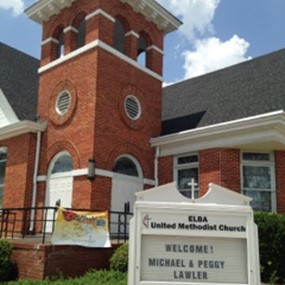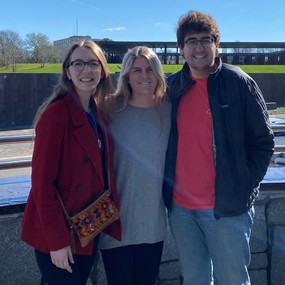Elba’s ‘third spaces’ help build community
Creating a sense of belonging is what Jennifer Amlong, director of the Elba Public Library, describes as the center of her work. She said she believes library services go beyond offering books to creating a space that fosters relationships.
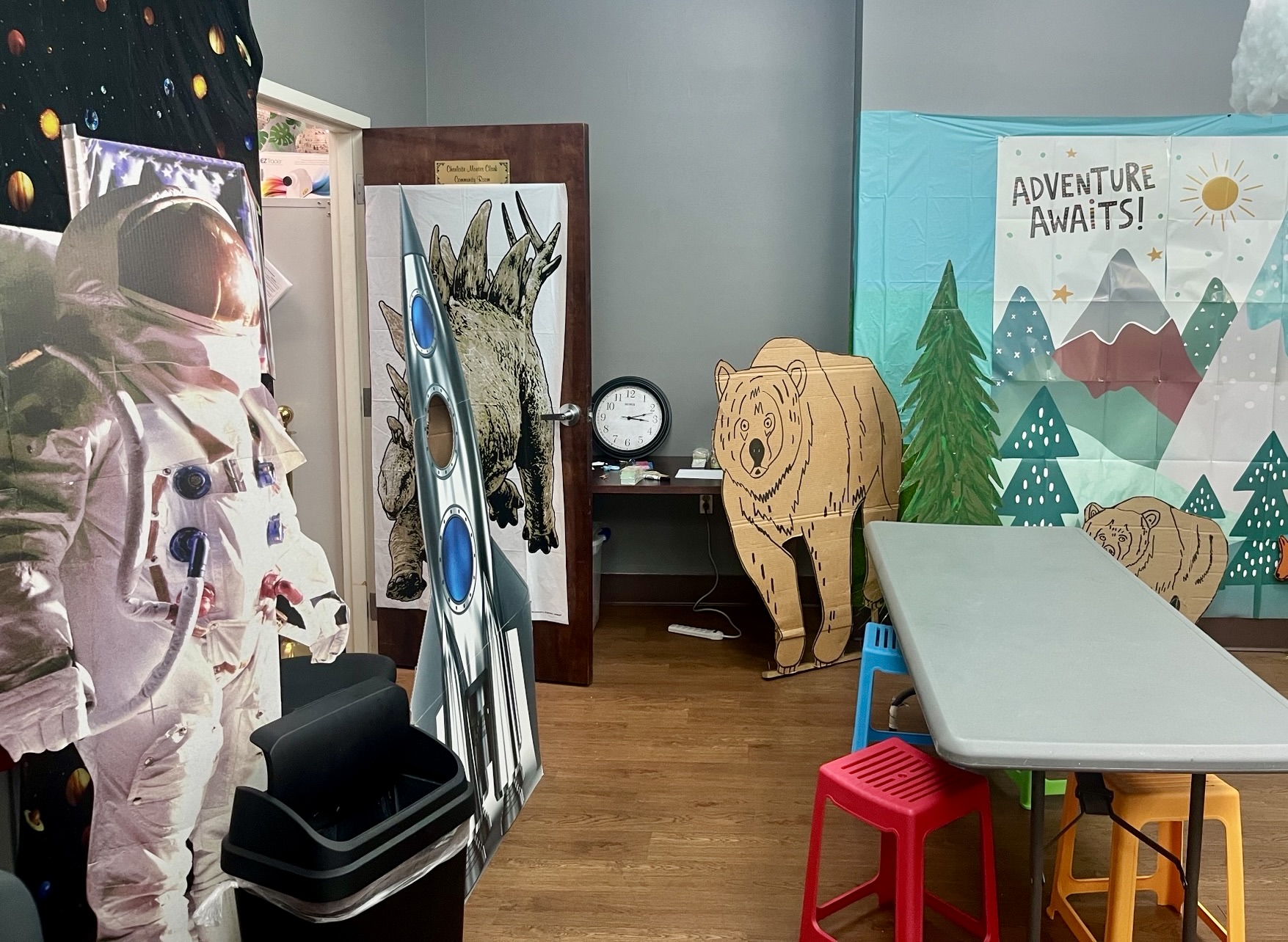
Forging relationships is the job of anyone who creates a “third space”. Examples of third places include churches, cafes, libraries, bookstores, shops, and parks. In his book The Great Good Place (1989), Ray Oldenburg argues that third places are important for civil society, democracy, civic engagement and establishing feelings of a sense of place, according to Wikipedia.
In small communities like Elba, these places are at the center of social life. Amlong said she believes there are two visions for libraries. “Old school libraries are just about getting books to people,” she said. “I want it to be more of a hub for the community, so we have continued to work toward that goal.”
The library hosts different programs for all ages such as “coffee and coloring”, a weekly event offering art activities to bring people together. Additionally, summer reading programs are held for children to promote education and engagement.
Amlong said, “We try to see what our community needs and meet those needs however best we can.”
The Elba Library’s Community Room provides space for a variety of events such as summer reading, craft activities, holiday gatherings, and more programs designed to bring friends together.
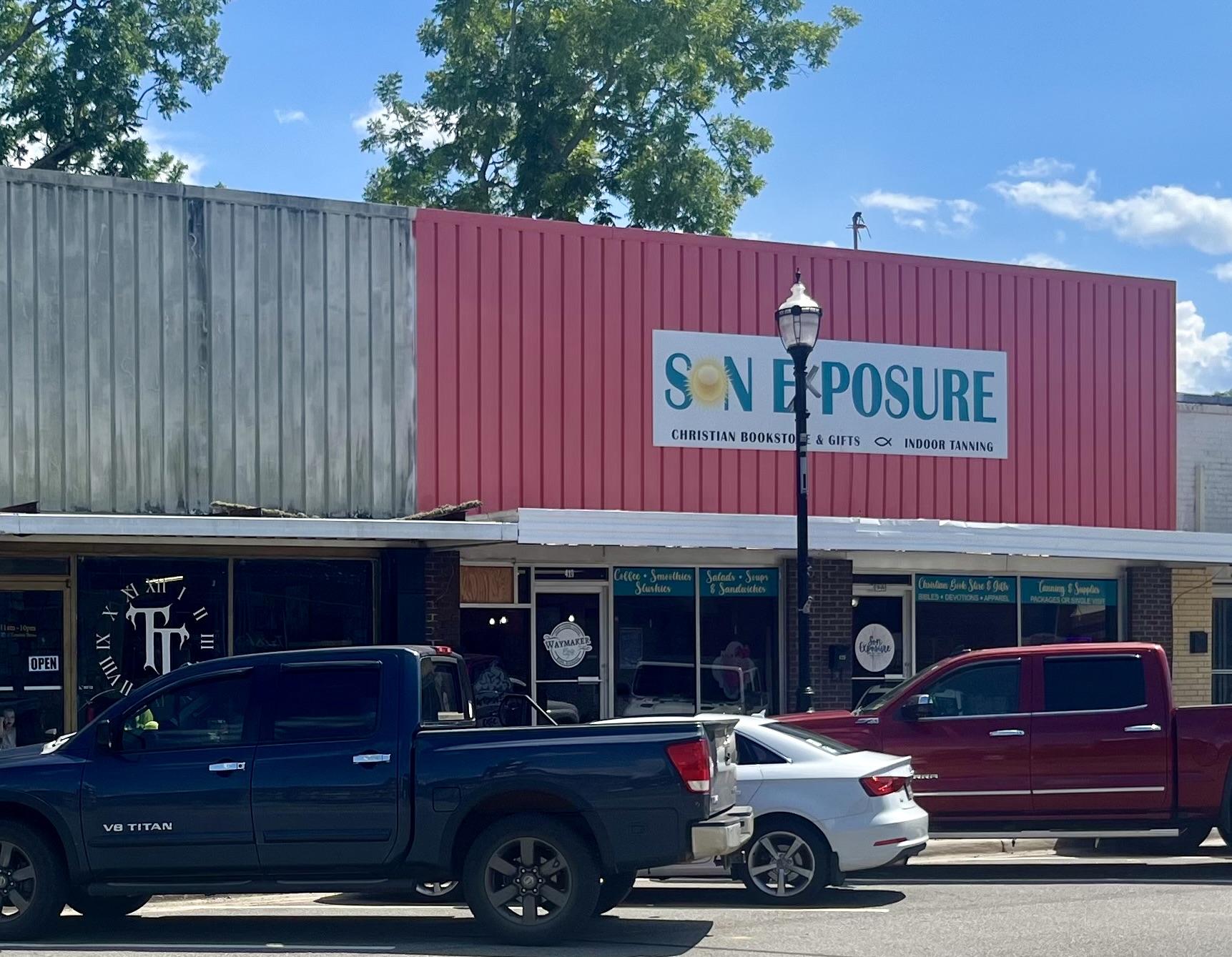
Others in Elba share a desire to fulfill community needs by creating social spaces. Melissa Wood, accountant and entrepreneur, saw a need for a coffee shop and opened Waymaker Café.
Wood said she is always asking herself “What can I do for Elba?” She said she views Waymaker, a café and Christian bookstore, as a ministry.
When the building was renovated, old boards used for the walls were kept and painted the original color. Wood said preserving historic elements from once-vacant buildings reflects town history and are aesthetic choices customers appreciate.
Small-town social spaces are known for close relationships between staff and customers. She teaches her staff that they can provide a smile to make customers’ days better. “This is what we are here for,” she said.
The seating area at the coffee shop features a comfortable area designed to be “a safe and wholesome environment” ideal for bringing social and church groups together.
The Rabbit Hole, founded in 2015, is an iconic restaurant in downtown Elba known for its American food, live music, and unique look.
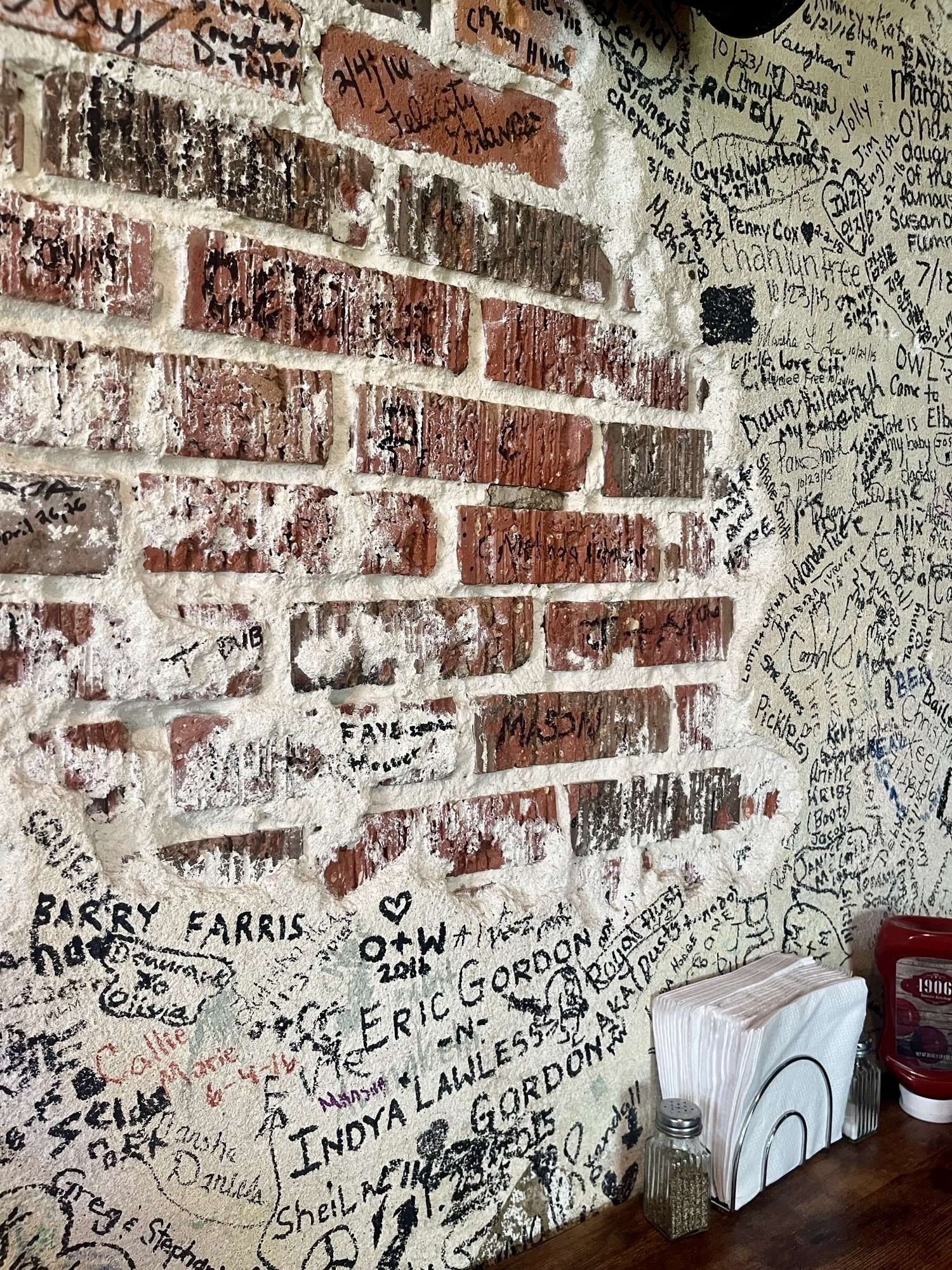
Michael Moseley, photographer and co-owner of The Rabbit Hole, said it was “opened up just for Elba to have something special.” He added, “It was never really a monetary thing. We just wanted something to put here downtown.”
Moseley said he believes spaces like The Rabbit Hole are important for communities like Elba. “It means a lot to downtown because we’ve been devastated by past floods so there are still a lot of empty buildings.”
He said, “I try to meet everybody who comes in, greet them, and talk to them. Make it personal.” That approach can be a feature of smaller communities that Moseley said can be harder to find in big cities.
Another way The Rabbit Hole is helping personalize the experience is by allowing patrons to sign their names. The restaurant walls are covered in signatures, names, and messages written by visitors over the years.
“We were trying to think of something for them to do to give it a personal touch, and we just started signing the wall,” Moseley said.
The Rabbit Hole sees familiar faces all the time. “We have a lot of people who come here three to four times a week,” Moseley said. “A lot of their friends come, and they’ll just sit and talk.”
As Oldenberg noted, third places serve as anchors of communities, providing spaces “where you relax in public, where you encounter familiar faces and make new acquaintances.”
Tags: Elba

